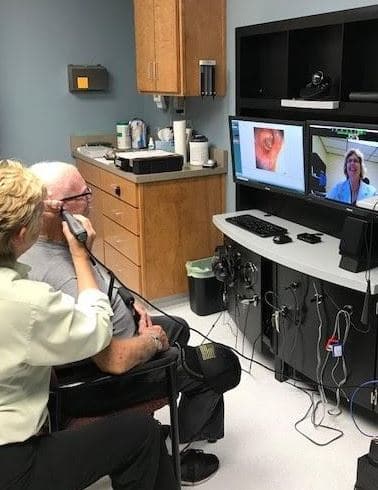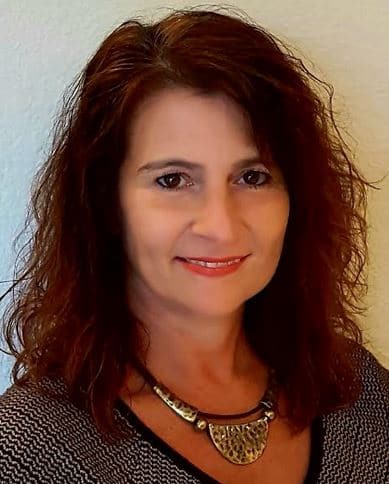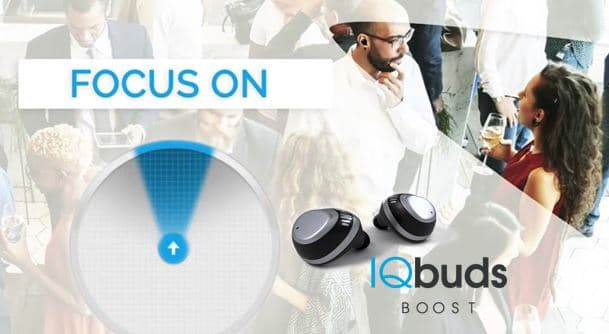by Suzanne Younker, Au.D.
Telehealth’s origins trace back to the 1960s when NASA wanted to know how a zero-gravity environment in space travel impacted astronauts’ vital signs. Monitoring their health from afar led to an essay in the Bulletin of the Medical Library Association, “Earth-Bound Physicians Trying to Diagnose or Treat a Patient in a Remote Location.”
NASA may have started Telehealth, but, the medical community and legislatures have brought it to the 21st Century. Still in its infancy, this modern delivery method of healthcare is rocketing towards adolescence and adulthood very quickly. What is stopping hearing care providers from implementing Telehealth into their practice?
Many providers are challenged with not knowing the legality regarding reimbursement, or how to get started and what equipment they need, or if their patients will even accept this method of service. The answers are available and ready for you to embrace Telehealth now.
Growing Interest in Telehealth
 Currently, Medicare laws are stringent and limiting, recognizing just eight healthcare provider types eligible for Medicare reimbursement and only for specific Telehealth services: physicians, nurse practitioners, physician assistants, nurse midwives, clinical nurse specialists, certified registered nurse anesthetists, clinical psychologists and social workers, and registered dietitians or nutrition professionals.
Currently, Medicare laws are stringent and limiting, recognizing just eight healthcare provider types eligible for Medicare reimbursement and only for specific Telehealth services: physicians, nurse practitioners, physician assistants, nurse midwives, clinical nurse specialists, certified registered nurse anesthetists, clinical psychologists and social workers, and registered dietitians or nutrition professionals.
In response to the medical community’s request to amend the law to relax limitations and increase the provider type list, Congress initiated the Bipartisan Budget Act of 2018 allowing (but not requiring) Medicare Advantage plans to offer additional telehealth benefits without the restrictions currently imposed by Medicare effective in 2020. In this Act, the Secretary solicited comments from the medical community on the telehealth changes and what should be considered an “additional telehealth benefit.” A final defining rule has not yet been issued.
On April 1, 2019, ASHA submitted a written response to a request from the Co-Chairs of the Congressional Telehealth Caucus on comprehensive telehealth legislation in the 116th Congress. The response fully supports the inclusion of Audiologists and Speech-Language Pathologists in the Medicare and Medicare Advantage reimbursement provider list stating:
“The ability of Audiologists and SLPs to perform services via telehealth is recognized by a wide range of stakeholders. Twenty states have included provisions in licensure laws that authorize audiologists and SLPs to perform services via telehealth. Private insurers in 30 states have established policies that allow Audiologists and SLPs to provide services via telehealth. In addition, 27 state Medicaid programs authorize these clinicians to perform services via telehealth.”
There is no doubting the strong momentum for Telehealth in general healthcare. Increased interest in TeleAudiology is no exception and can be implemented in any practice setting right now.
While present Medicare laws prevent common audiology codes such as 92550, 92557, and 92587 from being reimbursed by Medicare when performed via Telehealth, ASHA confirmed that numerous states include audiology services in their state’s Telehealth laws giving way for private insurance payors and Medicaid plans to reimburse for these services.
Business Opportunities Using Telehealth in Audiology
Most hearing healthcare facilities rely on other revenue-producing services to maintain their businesses in addition to testing reimbursement funds. These other services, such as, hearing aid sales and services, are primarily privately funded through private pay or through their patient’s insurance benefits. Telehealth fits perfectly into this retail revenue operation and is not limited by Medicare regulations.
Revenue opportunities via Telehealth are realized through private pay services. These services include tinnitus treatments, direct hearing aid sales, direct ancillary service sales (extended warranty, repairs, assistive listening devices, etc.) and indirect hearing aid sales through simultaneous scheduling.
Services required to produce a successful hearing aid fitting outcome include significant care commitments that consumes a day’s schedule. Having the most efficient daily schedule, being able to see more new patients sooner rather than later, increases patient satisfaction due to short wait times and boosts the bottom line for a business.
Fortunately, all necessary hearing care services can be accomplished through Telehealth; such as performing a hearing test to identify hearing aid candidacy, counseling and recommending appropriate amplification, completing the hearing aid delivery procedures, providing follow-up and troubleshooting activities, performing annual hearing screenings, tinnitus treatment, etc.
Benefits to Patients and Practices
Telehealth provides benefits to both patients and providers. Patients can be seen sooner for appointments, offices can provide extended hours, and patients can be seen at more convenient satellite locations. Providers will be able to have more flexible and efficient schedules, provide care to a satellite office without leaving their main office, substitute for a colleague during PTO or Family Leave instead of causing patient’s to be rescheduled, and attend to patients remotely from the comfort of their own home when getting to the office is not possible.
Telehealth can be customized to any practice’s needs and goals. A practice can choose to start with basic Telehealth services such as hearing aid troubleshooting and then expand into more involved activities such as hearing aid evaluations and fittings.
Successful Telehealth clinics often seek professional services for the implementation and training of Telehealth. A company that has knowledgeable and experienced TeleAudiology staff can make the difference between having a positive experience or a negative one. Venturing into this modern method of hearing care with the help and support of an experienced team will assure an exciting, satisfying, and successful Telehealth hearing care practice now and in the future.
 Suzanne Younker, Au.D., CCC-A, FAAA, is the Director of Telehealth at Your Hearing Network. Dr. Younker is a 29-year hearing healthcare provider with a vast array of experiences in providing direct care and fostering quality care for colleagues. Specifically, Dr. Younker has coordinated hearing instrument trainee programs while educating and mentoring trainees, provided skill oversight for quality assurance and compliance in a corporate setting, managed and resolved consumer service issues, performed operational duties for company functionality, and, in the past few years, coordinating and managing Telehealth implementation services.
Suzanne Younker, Au.D., CCC-A, FAAA, is the Director of Telehealth at Your Hearing Network. Dr. Younker is a 29-year hearing healthcare provider with a vast array of experiences in providing direct care and fostering quality care for colleagues. Specifically, Dr. Younker has coordinated hearing instrument trainee programs while educating and mentoring trainees, provided skill oversight for quality assurance and compliance in a corporate setting, managed and resolved consumer service issues, performed operational duties for company functionality, and, in the past few years, coordinating and managing Telehealth implementation services.







